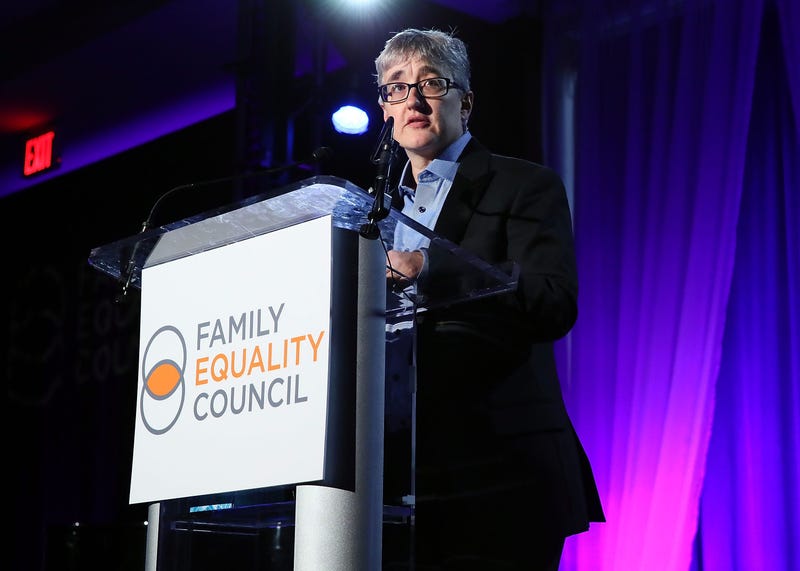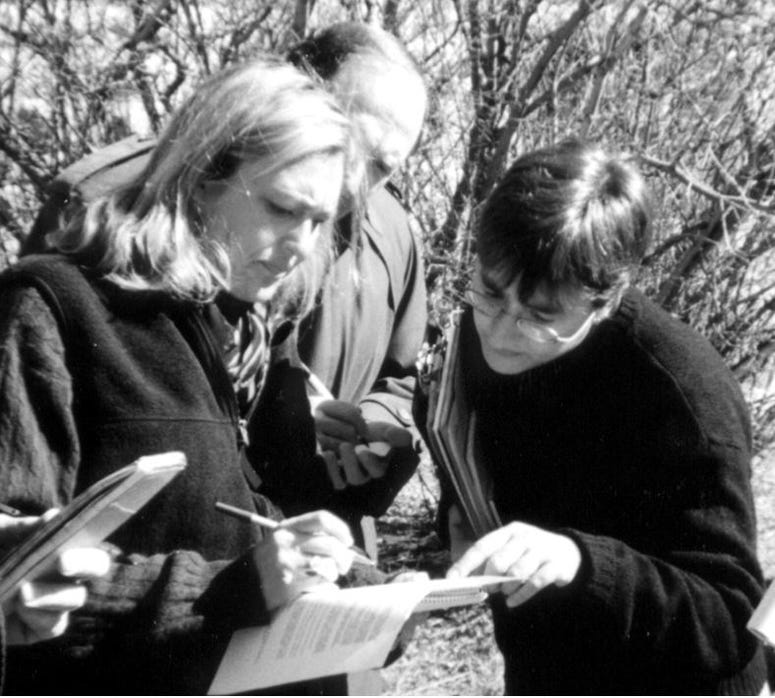
As we approach the largest Pride in history, with millions coming from around the globe for WorldPride and the 50th anniversary of the Stonewall uprising, we are missing so many LGBTQ people and allies who are not with us.
And when Judy and Dennis Shepard take the stage at the opening ceremony of World Pride, I know I will be thinking of their son, Matt, who would have been 41 last year, at the center of it all. I picture him in front of the Stonewall Inn, paying homage to those who fought back. Marching with a political group for our rights. Celebrating our diverse community.
Then I remember the image of him tied to a fence and left to die on a chilly October night in 1998 by two young men who targeted him because he was gay. What would he have contributed to the world?
This is where history and life collide, and we add his name to a long list of so many who have had immeasurable impact on the community that far too many do not know about.

Knowing our history is important – where we have been teaches us about where we are going. I know my journey as an activist has been shaped by many experiences in Laramie beginning nearly 21 years ago, when LGBT students asked for help and I got on a plane. My experiences in Laramie changed me forever and continue to shape my work, as his family continues to inspire me.
Sadly, I meet so many people now – of all ages – who don’t know who Matthew Shepard is, his story, his legacy and the ultimate sacrifice he gave for being openly and unapologetically gay.
Then I remember the image of him tied to a fence and left to die on a chilly October night in 1998 by two young men who targeted him because he was gay.
He also gave the world a great gift, his parents Judy and Dennis, who have carried his message and worked to erase hate for the past 2 decades and had an extraordinary impact on millions of lives through their advocacy and visibility. They are two of my greatest heroes and family to me, on that short list we all have of “I would do anything, anywhere, anytime.”
And so, Matt’s story is woven into the great tapestry of queer history, but like Stonewall, is a story that must be told again and again, as generations are not taught LGBTQ history in schools. On these occasions when we have such a huge spotlight, we must try our best to bring them to life for a new generation.
Just as the stories of Stonewall veterans like Stormé DeLarverie, Sylvia Rivera, Marsha P. Johnson, Mark Segal, Martin Boyce, Tommy Lanigan Schmidt, Jerry Hoose and others who fought back after years of police oppression and abuse must be re-told, so must Matt’s.
LGBTQ people can be fired from their job in nearly 30 states for their sexual orientation or gender identity.
And as we tell Matt’s story it is also about the much less publicized stories of those murdered for being LGBTQ or Two Spirit, from FC Martinez to Sakia Gunn, to the trans women of color I read about on a daily basis on social media who are targeted and often lose their lives simply for living honestly and openly.
The past few years have been especially difficult, with hate crimes spiking across the board, simply against LGBTQ people but immigrants, diverse faiths, women and people of color, and others.
So, what is the lesson here? As I say to the students I work with on productions of the Laramie Project, the journalists I work with - particularly this year as part of the NYC Pride team - I try to put this all into a realistic context. Whether talking about why Matt’s murder got so much attention (see my TedX discussion of that), the inexcusable “gay panic defense” or the larger context of the number and scope of hate crimes, so much of my work, in content and spirit, is influenced by my experiences though the Shepard murder and aftermath. And I thank Matt and his parents for that.
So millions gathering in NYC and around the world as a visible, diverse and proud community is more important than ever. It is an act of resistance whether you protest in the street or attend an event and if even for a brief time, revel in the extraordinary joy of knowing you are part of something much bigger than yourself. I know as I gaze at the millions from the edge of a stage or look down a street filled with thousands of queer people and allies marching for respect and equality with scores more cheering from the sidelines in encouragement, I am proud.
And how I wish Matt could be there to see it. And FC Martinez. And Sakia Gunn. And countless others lost to violence, AIDS, suicide and the impact of transphobia and homophobia.
That said, for a few days in Washington, D.C. last year I felt hope in a way I haven’t for some time, at the interment of Matthew Shepard at the Washington National Cathedral. The love was palpable, both in the music and the words of Bishop Gene Robinson. Watch it:
I was inspired by Dennis Shepard’s remarks, and was relieved that Matt finally had a safe resting place where we can all go to remember, reflect, and recommit to making the world a better place for all. I felt a sense of closure, twenty years after learning about a hate crime in Laramie, Wyoming, and going to help students and the local community with the media on the ground.
Last year I also saw his legacy carved – literally – into history. I spent a lot of time in the St. Joseph of Arimathea crypt at the Washington National Cathedral, where Hellen Keller and Anne Sullivan are interred and where Matt’s remains are now. Hearing noise in the hall, I went to ask for quiet and ended up giving a group of docents-in-training a Q and A on Matt and his story. Hundreds of thousands of visitors will hear his story. As Kate Snow from NBC said, a place in the Washington National Cathedral is reserved for “those who have made extraordinary contributions to the world.” Choking back tears, Judy Shepard simply said, “I guess he has.” And now will forever be, as his story is part of American history on a level even we never imagined.
We saw the Smithsonian accept many of Matthew’s personal affects for their LGBTQ collection, from a Superman cape to the wedding ring he one day hoped to give to the man he would want to share his life with, making so real that this was both an ordinary and extraordinary young man who truly wanted to help change the world.
Matthew Shepard’s story will forever live, but we must continue telling the stories of those affected by hate violence, discrimination and prejudice. As well as the stories of those left behind who can turn grief and anger into love and action.
